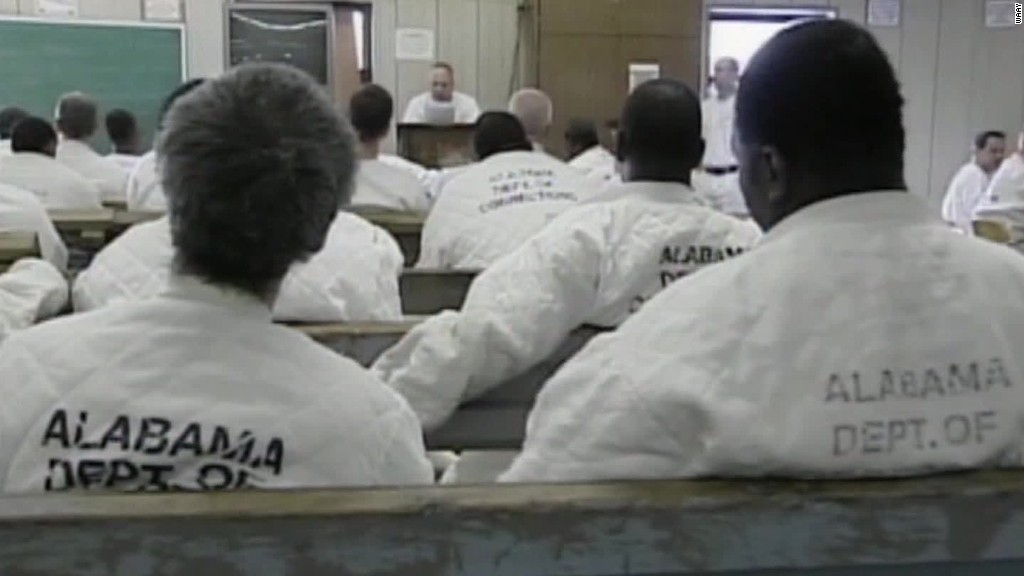
The government's long battle against sky-high prison phone rates isn't over yet.
A U.S. Court of Appeals in Washington this week issued a stay on the FCC's November 2015 order to lower the cost of all calls from prisons. Prisoners' phone calls had cost as much as $14 a minute before the new caps were enacted.
The FCC last year voted to cap prison phone calls at 11 cents a minute for all local and long distance calls from state and federal prisons. In jails, caps ranged from 14 cents to 22 cents a minute, depending on the size of the institution.
But prison phone companies GTL and Securus Technologies sued the FCC, arguing that the ruling overstepped the commission's authority. The companies asked the court to prevent the FCC from enacting its rules until the completion of the court battle, and the court ruled in the companies' favor.
Related: $14 a minute? Pricey prison phone calls capped by FCC
For more than a decade, family members of prisoners have complained about the astronomically high phone rates to keep in touch with their loved ones. The FCC had named its ruling after Martha Wright of Washington, who claimed that she paid $1,000 a year to cover the costs of her grandson's phone calls from various state prisons.
The steep cost of prison fees, including phone calls, can leave prisoners saddled with debt when they are released.
Despite the court's ruling, there's at least some good news for family members of prisoners. The appeals court's stay will only significantly impact calls that are made within the same state. Calls made outside of the state will return to the previous cap, set at 25 cents a minute for a collect call, and 21 cents a minute for a debit or prepaid call.
The FCC had previously ruled in 2013 to cap the rates inmates and their families pay for interstate calls from prison, and the court's stay does not affect that ruling. The 2013 caps were supposed to be imposed on an interim basis until the FCC's 2015 ruling to cap all prison phone rates.
The court's stay also does not affect the FCC's previous restriction on ancillary fees imposed on interstate prison calls, which had added about 40% on average to the cost of a call.
Fee caps will take effect on March 17 for prisons and June 20 for jails, the FCC said.
Yet interstate calls make up only a small subset of phone calls from prisons.
"While we regret that relief from high inmate calling rates will be delayed for struggling families and their 2.7 million children trying to stay in touch with a loved one, we are gratified that costly and burdensome ancillary charges will come to an end," said FCC Chairman Tom Wheeler and Commissioner Mignon Clyburn in a joint statement. "Ultimately, we believe the court will uphold the new rates set by the Commission."
Related: Costly prison fees are putting inmates deep in debt
Prison calling services differ from typical payphones in some crucial ways. They can block inmates from making calls to certain people, including judges or witnesses. They can't dial 800 or 900 numbers, and phone conversations can be monitored. If a prisoner is repeatedly making a call to the same number, for instance, corrections officers might listen in or record future calls. The systems also periodically notify the recipient that the call is being placed from a jail.
All those features -- and the personnel needed to manage the systems -- make prison systems more costly to operate than regular payphones.
But most prisons offer exclusive deals to phone service providers in exchange for astronomical commissions. The FCC has labeled inmate calling services a government-sponsored monopoly, charging rates that far exceed their costs.

